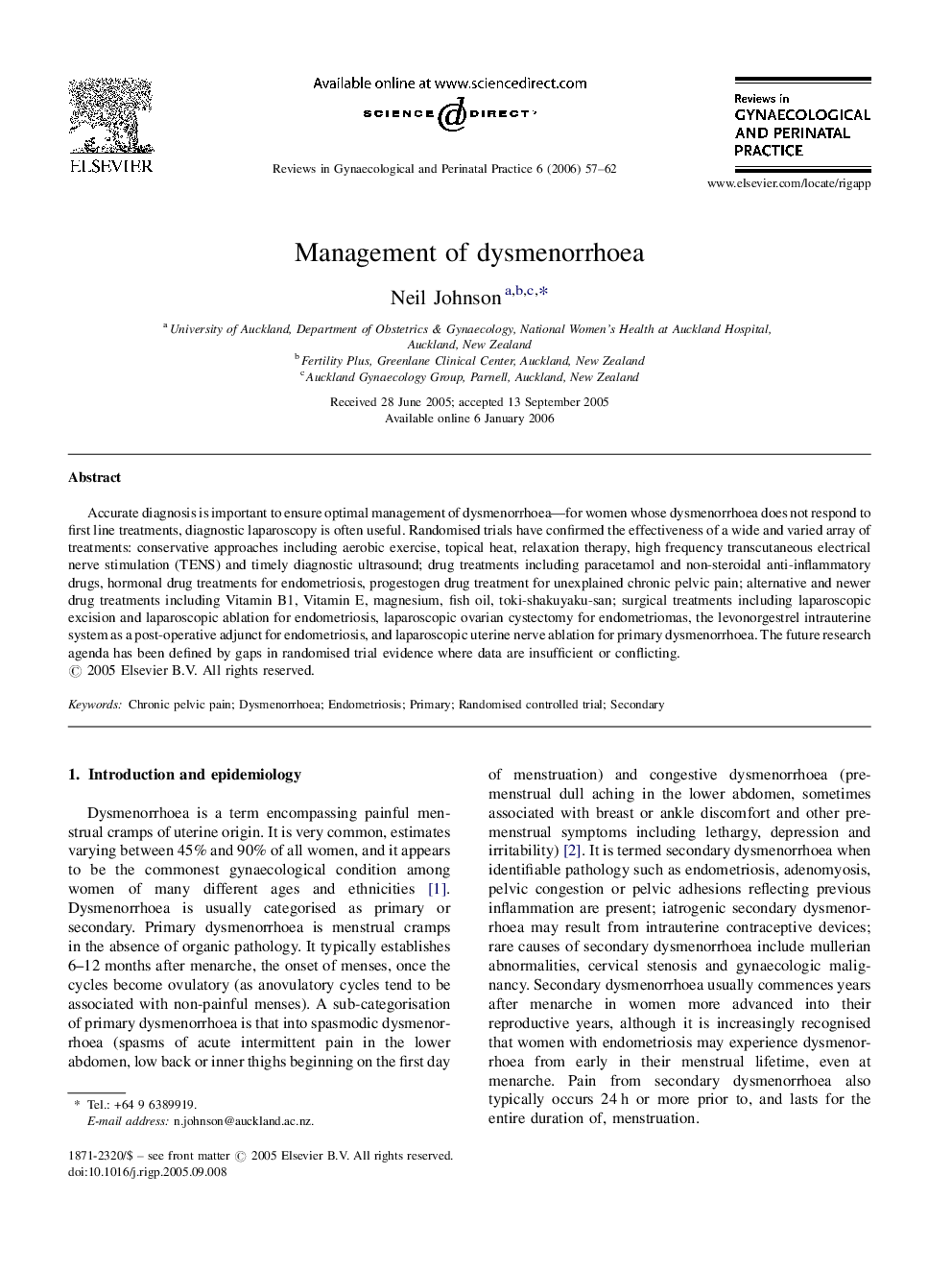| Article ID | Journal | Published Year | Pages | File Type |
|---|---|---|---|---|
| 3973713 | Reviews in Gynaecological and Perinatal Practice | 2006 | 6 Pages |
Accurate diagnosis is important to ensure optimal management of dysmenorrhoea—for women whose dysmenorrhoea does not respond to first line treatments, diagnostic laparoscopy is often useful. Randomised trials have confirmed the effectiveness of a wide and varied array of treatments: conservative approaches including aerobic exercise, topical heat, relaxation therapy, high frequency transcutaneous electrical nerve stimulation (TENS) and timely diagnostic ultrasound; drug treatments including paracetamol and non-steroidal anti-inflammatory drugs, hormonal drug treatments for endometriosis, progestogen drug treatment for unexplained chronic pelvic pain; alternative and newer drug treatments including Vitamin B1, Vitamin E, magnesium, fish oil, toki-shakuyaku-san; surgical treatments including laparoscopic excision and laparoscopic ablation for endometriosis, laparoscopic ovarian cystectomy for endometriomas, the levonorgestrel intrauterine system as a post-operative adjunct for endometriosis, and laparoscopic uterine nerve ablation for primary dysmenorrhoea. The future research agenda has been defined by gaps in randomised trial evidence where data are insufficient or conflicting.
